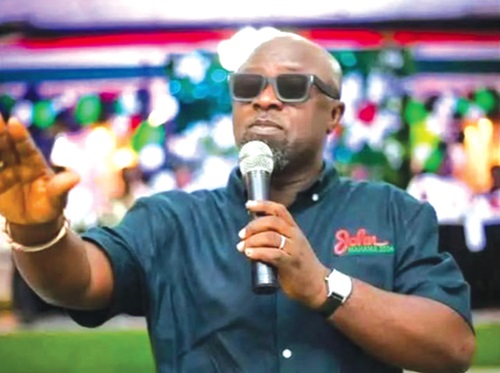On Tuesday, April 15, 2025, the new Chief Executive of the Kumasi Metropolitan Assembly (KMA), Richard Ofori-Agyeman Boadi, widely known as King Zuba, captured national attention with remarks that were anything but ordinary.
At a press briefing, the mayor declared his intent to take a hardline approach to urban management in Kumasi. His words were clear—and controversial.
Traders who defy city bylaws and sell on unauthorised pavements, he said, risk being beaten.
Stray cattle found roaming the Central Business District will be killed, and their meat donated to prison inmates.
He referred to his upcoming administration as a “democratic military style” of leadership—a phrase that has left many wondering: What kind of leadership does Kumasi need, and is this the path to progress?
There’s no doubt that Kumasi faces serious urban challenges.
Pavement hawking has turned walkways into congested mini-markets.
Traffic flow is regularly obstructed.
Livestock roam freely in key commercial zones. Sanitation remains an ongoing issue. But these problems are symptoms of long-standing governance gaps, not crimes that should be met with beatings or vigilante justice.
Urban development is a complex puzzle. It demands vision, systems and sustained community engagement. While firmness is necessary—laws must be enforced—there is a profound difference between discipline and despotism.
Ghana’s democracy, though young, must continue to mature by rejecting the temptation of authoritarian shortcuts in favour of inclusive, evidence-based leadership.
Leadership by fear has a short shelf life. It may win quick applause, but it rarely builds sustainable change. True transformation requires a leader who can inspire compliance, not enforce submission.
If the mayor is serious about turning Kumasi around, he must invest in the tools that create lasting impact:
• Urban planning and zoning enforcement that are fair, transparent and consistent.
• Education campaigns that inform traders and residents of the law and why it matters.
• Partnerships with civil society and community leaders to co-create public order solutions.
• Clear alternative spaces for displaced traders, not just eviction notices or threats.
• A city beautification strategy that integrates sanitation, public transport and traffic management.
The mark of a great city is not how harshly it punishes those who step out of line, but how smartly it creates systems where people are empowered to follow the rules.
Kumasi doesn’t need a strongman; it needs a strategist.
It doesn’t need “punishment”; it needs policy.
And it certainly doesn’t need cattle killings and public beatings.
What it needs is a new urban vision that marries discipline with dignity, order with opportunity, and power with empathy.
If the mayor can recalibrate his message and match his energy with thoughtful, rights-based leadership, he has the opportunity to be remembered not as Kumasi’s “Punisher,” but as its Planner-in-Chief—the one who restored order through service, not violence.
Kumasi is a cultural capital. It is the heartbeat of Asanteman and a key economic hub in Ghana.
It deserves more than dramatic declarations.
It deserves respectful, modern governance that sees street vendors not as enemies, but as entrepreneurs.
That sees stray cattle not just as nuisances, but as signals of a system that needs fixing.
Let us reject the narrative that fear drives change.
Let us embrace leadership that is bold, but not brutal; firm, but fair; urgent, but grounded in the law.
Ghana doesn’t need a Duterte.
It needs visionary leaders who are unshaken in values and unafraid to lead with wisdom.
Bernard Kwofie,
Analyst, consultant and a podcast host.
E-mail: 02nana12@gmail.com

